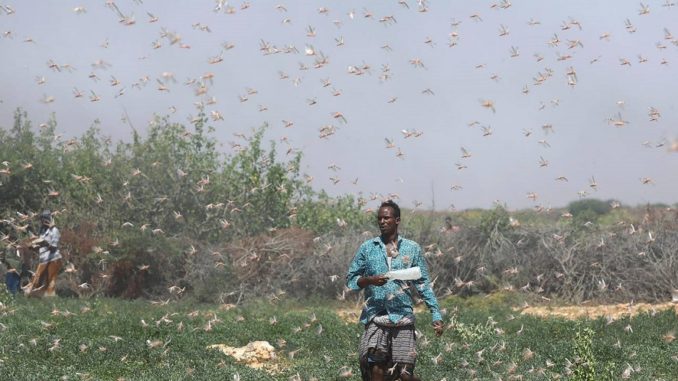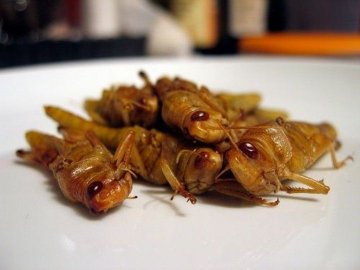
Somalia tackles worst locust invasion by eating them

When a locust infestation consumed Somalia and Ethiopia destroying crops and threatening food security in the region, farmers and residents have come up with an ingenious solution.Residents in central Somalia have resorted to frying locusts and serving them with rice with a verdict that they taste even better than fish.
As with all things novel, one man claims eating the insects could help reduce his back pain and blood pressure, while some residents have apparently urged local restaurants to introduce locust dishes.
The UN’s Food and Agriculture Organization (FAO) had reported the environmental damage of the infestation could endanger crop production beyond Somalia if it goes unchecked.
“A single locust plague can lead to a loss of 170,000 tonnes of grain, enough to feed one million people for a year,” the organization said.
This is the worst case of invasion of locusts in 25 years. The invasion has already destroyed at least 175,000 acres of farmland in Somalia and Ethiopia, according to the FAO.
According to FAO regional coordinator, David Phiri, favourable weather conditions for locust breeding meant there was a high probability of the insects continuing to spawn rapidly until April 2020.
Jirow Qorhere, a farmer in central Somalia, said earlier this week that he had lost all his crops from the infestation.




